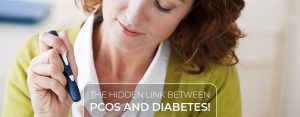A PCOS diagnosis is overwhelming news to hear especially when you know that getting healthy can’t happen overnight. So we have compiled a list of Healthy Habits for PCOS that with patience and dedication, can transform the life of someone struggling with PCOS.
Healthy Habits for PCOS:
Love Carbohydrates:
Women struggling with PCOS benefit immensely when foods like gluten, dairy, and soy are eliminated. These foods cause inflammation which can exacerbate symptoms of PCOS. Meat, dairy and eggs can further increase your risk of developing type 2 diabetes, a common concern of women with PCOS. Dr. Neal Barnard, founding president of the Physician’s Committee for Responsible Medicine, and his colleagues report that a low-fat, plant based whole food vegan lifestyle free of animal products and refined oils can lower cholesterol, reduce blood pressure and help people lose weight.
In fact, Dr. Barnard’s program does not require any calorie counting, portion control or cutting out carbohydrates. That’s news to celebrate!
Move Your Body and Lift Heavy Stuff:
Exercise is a habit all women with PCOS must learn to adopt. Thankfully, “moving your body” every day means unlimited possibilities so find an activity you love and do it every day until it becomes a habit. We recommend jogging, cycling, swimming, elliptical machines and weight training.
Forget every time you have been told lifting weights will make you bulky and start building some fat-burning muscle. In fact, replacing ten pounds of fat with ten pounds of muscle can burn fifty more calories per day.
Don’t forget to stretch at least three times a week for thirty minutes to prevent injury.
Practice Self-Love:
Learn to love yourself now, not after you lose ten pounds or twenty or fifty. Being body positive does not mean waking up every morning and being satisfied with what you see in the mirror. After all, a majority of the population doesn’t feel satisfied which means we can be happy while striving to improve ourselves. So, don’t wait to move to Hawaii and bask in the sun on the beaches of Oahu wearing a bikini. Live the life you want to live now and treat your body with kindness and patience. After some time, this will be a habit and you will be a happier person.
Don’t be a Victim:
Instead, choose to take action. Women with PCOS are not victims of their disease. These women can overcome their symptoms of PCOS by taking ownership of their well being and journey to health and healing. Choosing the right attitude every day is habit forming and can make a huge difference in quality of life.
Educate to Empower:
Armed with the right attitude and mindset, it’s time to get educated. Physicians may have limited experience with PCOS and may opt for a treatment plan consisting of pills and a cookie-cutter low carb diet. Do your own research and be your best advocate.
Sleep until Refreshed:
If you live by the old adage “I’ll sleep when I’m dead,” stop. If you find yourself about to say the words “but I don’t have time for sleep,” seriously, stop it. Balanced hormones and your endocrine system depend on adequate sleep as well as body and brain function. Maintaining healthy habits and a positive mindset is near impossible when you’re chronically tired and depend on a jolt of caffeine to get you through the day. Roughly two-thirds of citizens in the US are getting a less than adequate amount of sleep per night while obesity is still on the rise. No one, including you, benefits from brain fog.
So, no more excuses and no more feeling guilty about sleeping in. Make it happen.
Take Control of Stress:
Stress triggers the release of cortisol which can wreak havoc on the hormonal system and lead to weight gain. If this news alone is stressing you out, don’t panic. Women who are managing PCOS develop coping mechanisms to handle stress and learn to relax even in the worst of times.
Plan your Meals and Cook Often:
Planning and organization is key to a Healthy Habits for PCOS, consistent lifestyle. Work on this each day and an organized life will be second nature. Careful planning and cooking regularly can help reduce the amount of processed foods you consume and prevent cravings throughout the day because you didn’t prepare enough food and now you’re in the McDonald’s line.
Take High-Quality Supplements:
While there is no magic pill to cure your symptoms and while your long-term health depends on comprehensive lifestyle changes, a simple, healthful supplement for PCOS can be great to add to your diet while you transition to Healthy Habits for PCOS.
Furocyst, for example, is extracted from the Fenugreek seed through a patented process, without using chemicals and is rising in popularity as a beneficial supplement. Clinically proven safe and effective for managing PCOS, Furocyst is shown to reduce the size of ovarian cysts and improve insulin sensitivity. For more information, visit www.fenfuro.com.
Strive for Progress not Perfection:
Nobody is perfect yet we all too often strive for perfection in our work, relationships and bodies. We lose ten pounds, feel empowered, and then catch a look at our “jiggly thighs” in the mirror and instantly shower ourselves with self-deprecation and ridicule. This is a habit that women struggling with PCOS and weight gain must break. Dissatisfaction with your body during weight loss is normal but if you make a habit of putting your health first, and be kind to yourself when you feel inadequate, women with PCOS can have a much better quality of life. Soon, with patience and the right lifestyle changes, you will be the goddess you were born to be with an existence that literally hurts people’s feelings.
For more info visit https://furocyst.com or







 AIIMS, shows that about 20-25 percent of Indian women of childbearing age are suffering from PCOS. While 60 percent of women with PCOS are obese, 35-50 percent have a fatty liver. About 70 per cent have insulin resistance, 60-70 percent have a high level of androgen and 40-60 percent have glucose intolerance
AIIMS, shows that about 20-25 percent of Indian women of childbearing age are suffering from PCOS. While 60 percent of women with PCOS are obese, 35-50 percent have a fatty liver. About 70 per cent have insulin resistance, 60-70 percent have a high level of androgen and 40-60 percent have glucose intolerance
 Female ovary secretes estrogen and progesterone that helps in the ovulation. It also secretes testosterone (Male Hormone) in small amount. In PCOS, the level of testosterone is elevated, which results in excessive growth of hair on the body. This condition also called as hirsutism.
Female ovary secretes estrogen and progesterone that helps in the ovulation. It also secretes testosterone (Male Hormone) in small amount. In PCOS, the level of testosterone is elevated, which results in excessive growth of hair on the body. This condition also called as hirsutism. Acne: In Pcos, the amount of androgen is increased. Androgens can increase the size of the oil producing glands on the skin, which can lead to increase in acne. Acne is common in adolescence, but young women with PCOS tend to have more severe acne.
Acne: In Pcos, the amount of androgen is increased. Androgens can increase the size of the oil producing glands on the skin, which can lead to increase in acne. Acne is common in adolescence, but young women with PCOS tend to have more severe acne. As we know that, there are very low or no early symptoms of PCOS, so most of the women do not notice or bother about it until it becomes severe. The symptoms of PCOS are sometimes equated to thyroid symptoms. TOO MANY WOMEN WITH PCOS GO UNDIAGNOSED. PCOS has a common overlooked negative aspect, mental health issues associated with the disorder. Depression, anxiety or even both are experienced in early adulthood. In addition to that, unwanted facial hair, excessive weight gain, and
As we know that, there are very low or no early symptoms of PCOS, so most of the women do not notice or bother about it until it becomes severe. The symptoms of PCOS are sometimes equated to thyroid symptoms. TOO MANY WOMEN WITH PCOS GO UNDIAGNOSED. PCOS has a common overlooked negative aspect, mental health issues associated with the disorder. Depression, anxiety or even both are experienced in early adulthood. In addition to that, unwanted facial hair, excessive weight gain, and 
